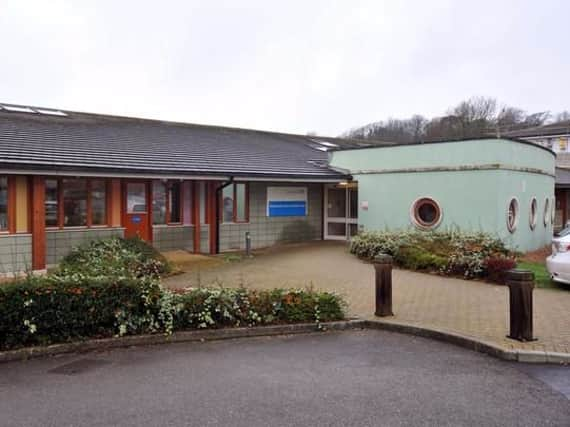'Gross failings' contributed to death of Hastings patient


During a four-day inquest, which was held at Muriel Matters House between July 3 and July 6, a jury heard how 32-year-old Sabrina ‘Sabby’ Walsh had died of hanging at the Woodland Mental Health unit on October 31 last year.
She had been in the care of the unit, which is part of the Sussex Partnership NHS Foundation Trust, for less than four hours before she died.
Advertisement
Hide AdAdvertisement
Hide AdThe inquest heard that no formal risk or mental health assessment was taken by nursing staff after she was admitted to the ward, despite this being a 'minimum expectation' under the policy of the NHS Trust. Staff were also unaware of a recommendation that she be placed on one-to-one observation after she had been assessed as being at 'high risk of suicide' earlier that day.
The jury concluded that if she had been given a risk assessment and been on correct observations her risk of self-harm "would have been reduced". They also found that staff did not effectively appreciate her needs, which resulted in a "serious failure" of her care.
In their conclusion the jury said: “Overall if correct procedures were followed they would have had a positive effect on Sabrina and the level of care received. By not following procedures this has had a clear and direct effect on her passing. This is a gross failing of medical care from staff at Woodlands”.
Speaking after the conclusion of the inquest, Ms Walsh's mother Christine Lavers said: “Sabby was a highly intelligent, loving and caring young woman, but she was very vulnerable and she was failed. She was let down by serious failures to assess her risks and observe her in a place where I thought she would be kept safe.
Advertisement
Hide AdAdvertisement
Hide Ad"The jury found that these basic checks could have prevented her death. All I want is that lessons are learned from this tragedy so that no more families are in this position. The Trust needs to take action now.”
In evidence from witnesses, the inquest heard that Ms Walsh had a long history of mental health difficulties prior to her admission to the unit and had been assessed as being at a 'high risk of suicide' in the hours before her death.
She had been taken to the Conquest Hospital by her mother on October 30 after suffering a serious deterioration in her condition. While at the Conquest she began to behave erratically and attempted to harm herself before she was detained by the police for her own safety.
As a result Ms Walsh was taken to a specialist ‘place of safety’ suite in Eastbourne for emergency care. Whilst at the suite she tried to harm herself by strangulation, but was interrupted by nursing staff.
Advertisement
Hide AdAdvertisement
Hide AdShe was constantly observed and was assessed as being at ‘high risk of suicide’ before she was detained under section 2 of the Mental Health Act.
On the afternoon of October 31, Ms Walsh was transported in a secure ambulance to the Woodland unit. She was noted to be highly agitated on arrival, at about 4:20pm.
The inquest heard that Ms Walsh was only formally checked every hour, and when staff carried out a check at 8pm, she was not in her room.
When staff returned to attempt to find her five minutes later, Ms Walsh was found dead in a bathroom. A pathologist's report found the cause of death was hanging.
Advertisement
Hide AdAdvertisement
Hide AdDiane Hull, chief nurse for Sussex Partnership NHS Foundation Trust, said: “I want to offer my sincere condolences on behalf of the Trust to the family of Ms Walsh. I do not underestimate how difficult and painful this inquest has been for her family and friends. Ms Walsh was a vulnerable young woman under our care and she died in tragic circumstances and for that I am sorry.
“We will reflect on the points the coroner has made today and respond to the concerns he has raised.
“We have already made changes following our own internal investigation, which include additional training for staff, improving communication among our different teams, better management of risk assessments and admissions procedures for patients and, crucially, replacing bathroom doors to ones where there are no ligature points.
“That said, Ms Walsh should not have died in these circumstances. We are committed to ensuring that we learn from this sad incident and have taken steps to ensure that nothing like this can happen again.”
For confidential support, call the Samaritans on 116 123. This service is free and lines are open 24 hours a day.